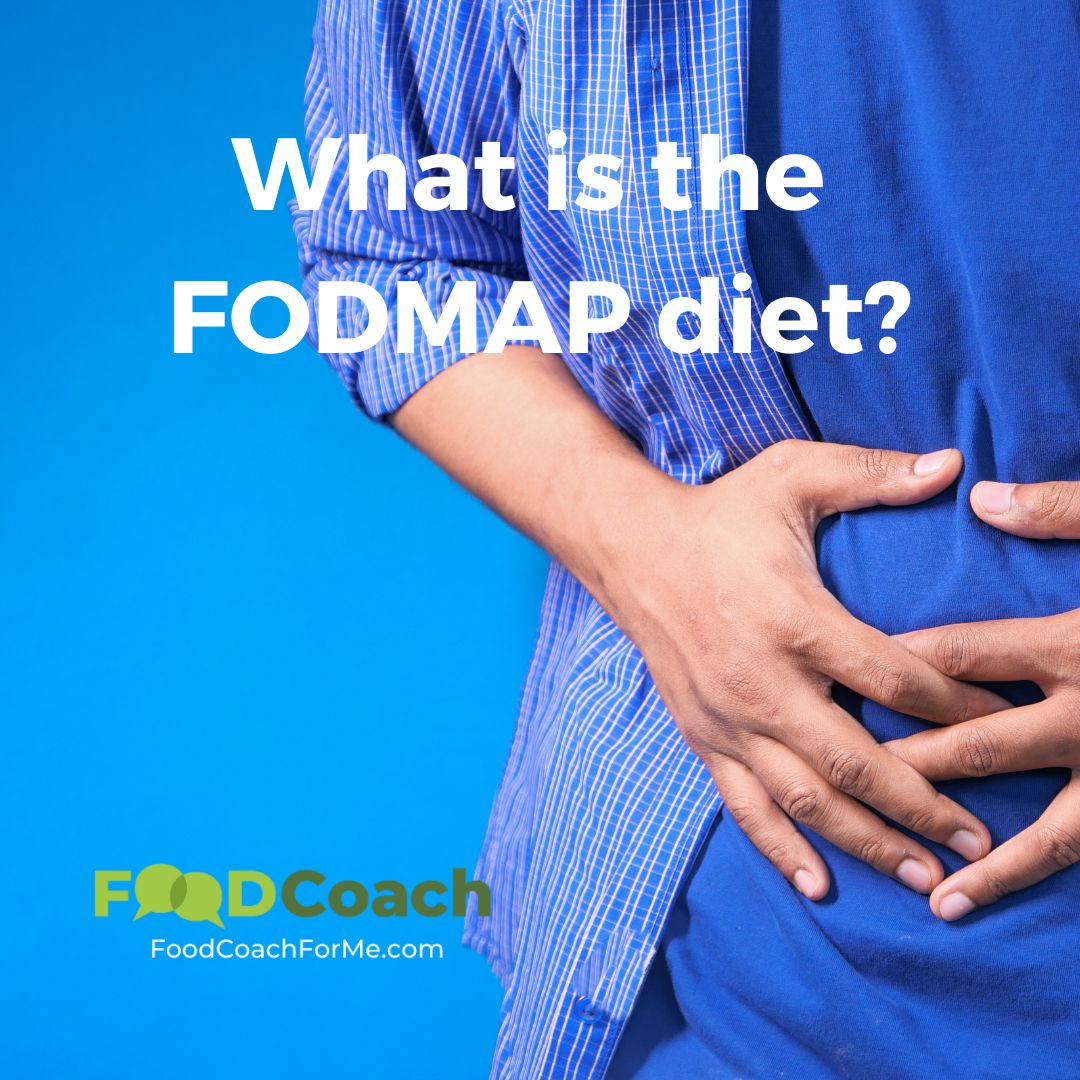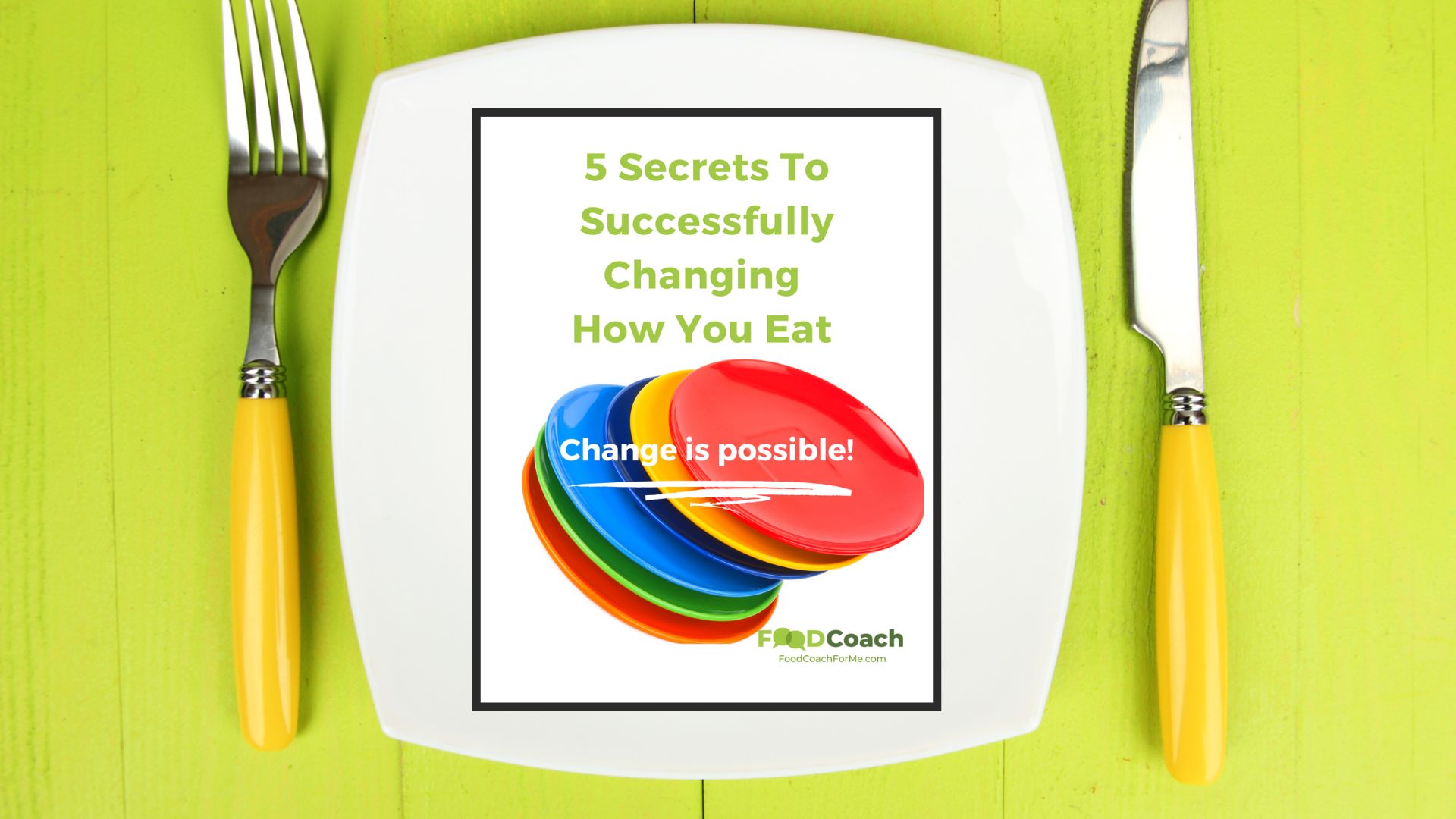What is the FODMAP diet?
May 31, 2022

The FODMAP diet was created to help people reduce their irritable bowel syndrome (IBS) symptoms.
It’s a three part approach to managing your IBS that focuses on what you are eating.
Phase 1: The first phase, called the elimination phase, reduces the FODMAPs a person eats. (Keep reading to learn what FODMAPs are and why they cause issues in some people with IBS.) If you are “FODMAP responsive” or “FODMAP sensitive,” your symptoms should greatly reduce during this phase.
Phase 2: The second phase, called the challenge phase, helps to identify what types of FODMAPs you are sensitive to. Most people react only to a few types of FODMAPs. Knowing which ones cause issues allows you to enjoy a wider range of foods while still reducing your IBS symptoms. It also prevents nutrient deficiencies that can occur if you eliminate too many foods for too long a time.
Phase 3: The final phase is often called the personalization phase. It focuses on reintroducing foods that don’t cause your IBS symptoms and expanding the variety of foods you eat. This phase is critically important in maintaining your good health as well as enabling you to get back to enjoying food and life.
The goal of the FODMAP diet is to reduce your IBS symptoms and get you back – as quickly as possible – to eating and enjoying the widest possible variety of foods.
What are FODMAPs?
The terms “refined carbs”, “ultra-processed carbs”, “bad carbs” and “good carbs” are commonly used these days. There are, however, many more terms for different types of carbohydrates. Some are based on the structure of the carbohydrate molecule. But don’t worry! You don’t need a degree in organic chemistry to use the FODMAP diet approach to feeling better.
Some types of carbohydrates are poorly digested in the small intestine of some people with IBS. FODMAP is an acronym for these classes of carbohydrates. It stands for “fermentable oligosaccharides, disaccharides, monosaccharides and polyols.”
When these carbs reach the large intestine, they become fermented by some types of bacteria in the gut microbiome. These are FODMAPs, and they can cause bloating, pain, and/or diarrhea, the classic symptoms for many, but not all, people with IBS.
There are, however, some important points that you should know before trying this approach to reducing your IBS symptoms!
Who may be appropriate for the FODMAP diet?
You should ONLY use this approach if you have a diagnosis of IBS from your doctor or primary care provider. Other medical issues can appear to be IBS. Your medical team needs to exclude those first. Also, the FODMAP approach may not be effective with all types of IBS.
Since so much happens during your visit with your doctor or primary care provider, if you have IBS some key points may not be discussed with you. Keep reading to find out what those important points are!
Will the FODMAP diet reduce your IBS symptoms?
For many people, there’s a good chance the FODMAP approach can reduce IBS symptoms. Unfortunately, there are some people who are not “FODMAP sensitive” so the approach won’t work to reduce their symptoms. Or, some other type of food intolerance, food sensitivity, or issue in their digestive system may also be causing problems. That leads to the next piece of information you need to know.
What is critically important on the FODMAP diet?
Working with a registered dietitian nutritionist (RDN) experienced in the FODMAP approach is key. The FODMAP approach is complex and can lead to nutritional deficiencies if you do not receive the proper guidance.
As a registered dietitian nutritionist specializing in gut health, for more than 10 years I’ve been helping people reduce their IBS symptoms and get back to enjoying their lives. The FODMAP approach is one that I’ve guided people through many times! I’ve also completed extensive training from Monash University, the leader in the world for this treatment approach.
A very common mistake is people think they are following the FODMAP approach appropriately but are not. As a result, they either continue to experience IBS symptoms or exclude many more foods than they need to – or both!
Also, sometimes there are non-FODMAP ingredients that cause issues. This is why you absolutely want to work with a registered dietitian nutritionist (RDN), like me, who is experienced in dealing with IBS, food intolerances, food sensitivities, and gut health issues.
There is a lot of inaccurate and misleading information on the internet!!!
I’ve lost count of how many people found inaccurate information on the internet before reaching out to me. Or how many people received confusing or outdated information from well-intentioned primary care providers and specialists.
This is an evolving method of treatment. You need to work with a registered dietitian nutritionist like me who keeps up with the research and changes in the foods that can be consumed as research continues.
Another common mistake on the FODMAP diet
Despite what you may commonly hear or read, the low FODMAP diet should not be followed for the long term! Eliminating so many foods that actually provide benefits to your body and gut microbiome is not healthy. Eventually, nutritional deficiencies can occur.
Yes, something that makes you feel better can actually make you unhealthy!
The correct approach is to follow a strict low FODMAP elimination phase for a few weeks. Then complete a series of carefully structured challenges that will help to identify which categories of FODMAP foods are causing your issues.
The goal is to reduce your IBS symptoms and get you back – as quickly as possible – to eating and enjoying the widest possible variety of foods.
Get back to enjoying food and life again!

Start on your journey by downloading my free guide “5 key items to track to help figure out what’s bothering your gut!” With the FODMAP diet, and other elimination diets, keeping a food and symptom log is an important part of figuring out what’s triggering your IBS symptoms.
Then contact me or book your free discovery call with me to see how my expertise can benefit you and get you back to enjoying food and life.


Having personally struggled with weight and gut health issues, I understand how easy it is to think that food is the enemy especially with the changes our bodies undergo as we age. It doesn’t have to be that way!
I love using my extensive education and coach approach to help people realize it is possible to feel better and be healthier while still enjoying their life and food.



